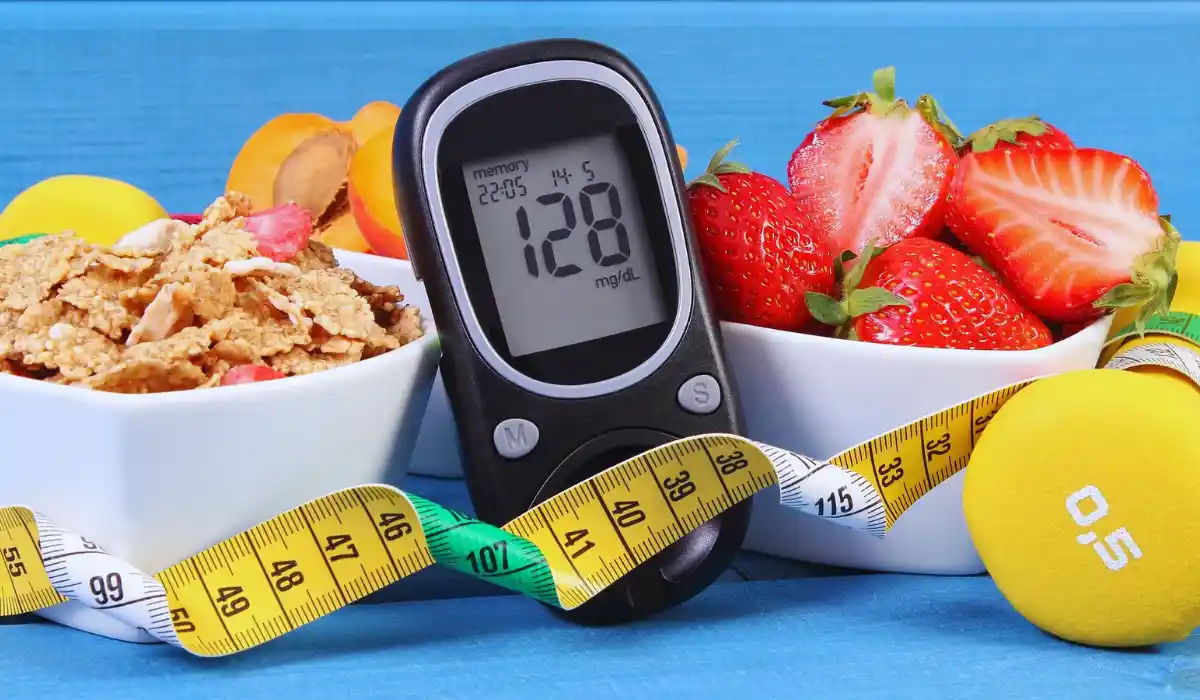The normal Blood Sugar Level after having a meal depends from person to person. What’s considered “Normal” glucose levels after having food can vary since the actual units can be individualized. The unit can vary for people with diabetes, people without diabetes, kids, senior adults, and pregnant ladies.
The chart below explains “Normal Blood Sugar” levels after two hours of eating for people under different categories:
| Category | Average Blood Sugar Level (After Eating) (mg/dL) |
|---|---|
| Children/ Teenagers (Below 18) | Under 180 mg/dL (after two hours of eating) and under 200 mg/dL (after one hour of eating) |
| Pregnant (Gestational) Diabetic Women | Under 120 mg/dL to 140 mg/dL (after one or two hours of eating) |
| Pregnant (Type 1 and Type 2) Diabetic Women | Under 110 mg/dL to 140 mg/dL (after one hour of eating), under 100 mg/dL to 120 mg/dL (After two hours of eating) |
| Adults with Diabetes | Under 180 mg/dL |
| Adults with Diabetes (for those taking mealtime insulin) | Under 180 mg/dL |
| Adults with Diabetes (for those who do not take mealtime insulin) | Under 140 mg/dL |
| Adults without Diabetes | Between 90 to 140 mg/dL |

Fasting Blood Sugar Level: Under 99 mg/dL
The Postprandial Blood Sugar Level is always higher than the Fasting Blood Sugar level as food spikes the insulin level. Let’s learn about in detail:
As we eat, especially meals like fruits, juices, baked goods, and more carb-rich food items, our blood sugar level rises immediately. Almost anything with calories gives a spike to the sugar levels; however, the density may differ. During the digestion process, our body breaks down carbohydrates into glucose, and later, our pancreas releases insulin in order to allow cells to use glucose for energy.
Simple carbs (including fruits, sweet and processed food) instantly raise blood sugar levels. At the same time, fiber and complex carbs (including oats, beans, starchy food, fruits, whole grains, etc.) slow down this process.
The Glycemic Index (GI) of any food item rates how much it can impact blood sugar levels. Due to that, the food items with high GI process quickly, leading to sugar spikes, whereas food items with low GI process slowly.
However, over two hours of eating, Blood Sugar Levels come down to normal (depending upon what you ate and your insulin response).
Choosing the Right Food Items For Stable Blood Sugar Level
The diet plays a vital role in managing blood sugar levels. Here are some simple and nutritious options to include in your daily diet for maintaining stable glucose levels in your blood:
- Whole grains, including oats, brown rice, quinoa, millet, and barley (complex carbs), digest slowly, thus preventing rapid insulin spikes.
- Colorful, non-starchy vegetables, including spinach, broccoli, red, yellow, and green bell peppers, tomatoes, zucchini, asparagus, etc., that, are rich in minerals, vitamins, and fiber.
- Lean protein in the form of legumes, fish, and tofu since it helps in stabilizing blood sugar levels.
- Healthy fats like olive oil, nuts, avocado, etc., promote satiety and stabilize blood sugar levels.
- Besides focusing on food choices, be mindful of portion sizes and avoid overeating. The best way to balance blood sugar levels is by focusing on small portions and eating multiple meals. Besides that, minimize the intake of sugary, salty snacks and processed food.
Factors Affecting Postprandial Blood Sugar Level (Besides Food)
Besides food, the other factors that affect postprandial blood sugar levels include:
- Less to no physical activity throughout the day.
- High stress levels.
- Poor quality or inadequate sleep.
- Dehydration leads to concentrations of high blood sugar levels.
- Certain medications, including corticosteroids and some antipsychotics.
- Irregular meal timing and oblivious spacing between meals.
- High alcohol consumption.
- Illness or infections.
- Hormonal fluctuations during pregnancy, menopause, and menstrual cycle.
- Gut health.
- Genetics.
Also Read: How To Stop Hair Fizzing
Conclusion
In conclusion, the normal blood sugar levels after having a meal are diverse and can differ amongst individuals. The impact of food and beverages on the postprandial glucose level is evident where complex carbs moderate the process, whereas simple carbs spike the insulin levels. Beyond food, a bad lifestyle in the form of inadequate sleep, alcohol consumption, a sedentary lifestyle, and certain medications also play an essential role in the management of blood sugar levels.
Balance your food and lifestyle in order to balance your sugar levels.
References
- Zafar MI, Mills KE, Zheng J, Regmi A, Hu SQ, Gou L, et al. Low-glycemic index diets as an intervention for diabetes: a systematic review and meta-analysis. Am J Clin Nutr. 2019 Oct 1;110(4):891-902. doi:10.1093/ajcn/nqz149.
- Darmouth Health Children’s. Monitoring Blood Glucose and Ketones.